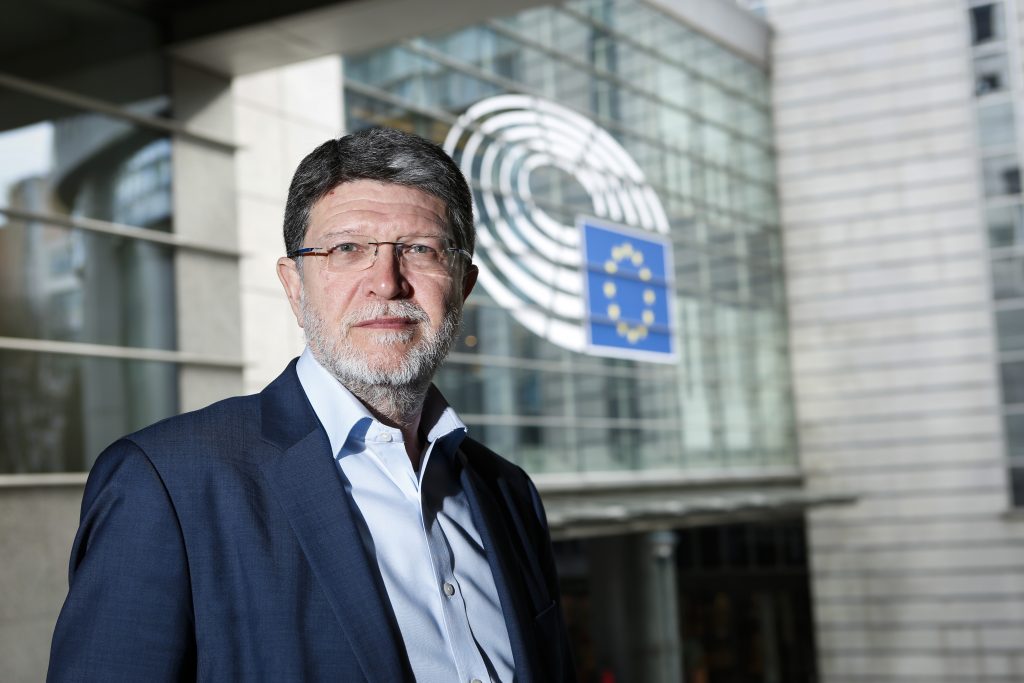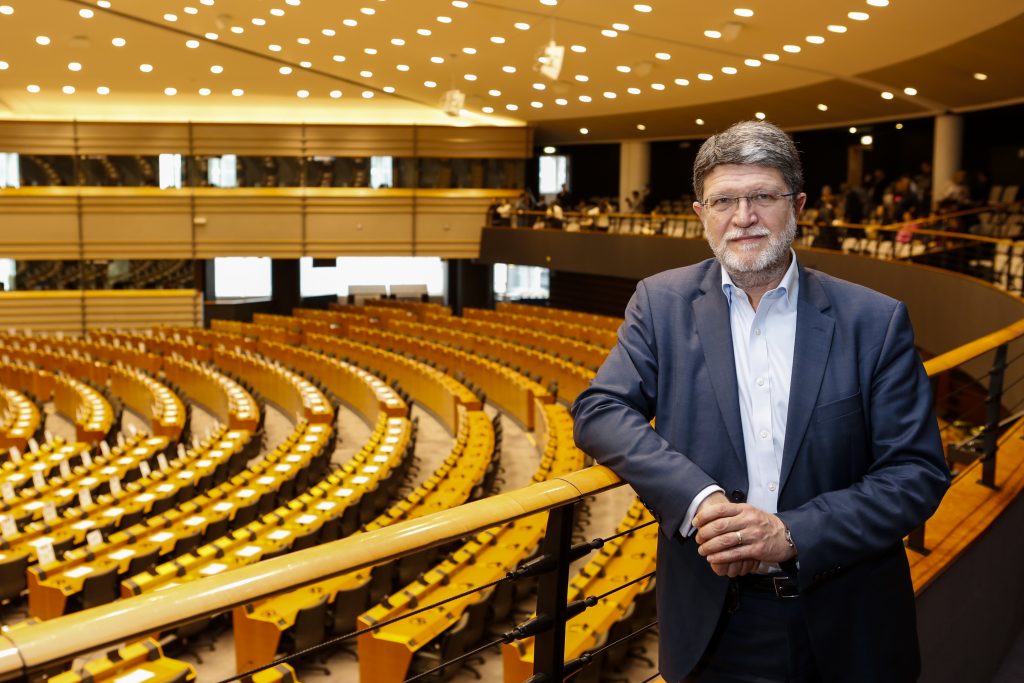Serbia is still lagging in the rule of law and media freedoms. On the other hand, the economic growth is noticeable, but it is questionable how much this growth has contributed to the improvement of quality of life of Serbian citizens.

A Croatian member of the European Parliament, Tonino Picula has been appointed the European Parliament’s Rapporteur for Recommendations on Western Balkans just before the summit in Zagreb, due to take place in May 2020. Mr Picula will be in charge of giving recommendations to the Council of the EU and the European Commission with the view of launching accession negotiation with North Macedonia and Albania, as well as giving fresh impetus to the enlargement process, it was announced in Strasbourg. In an interview for Diplomacy&Commerce, Tonino Picula talks about his activities in his new position, but also how he sees the Western Balkans in the future.
You have been recently appointed Head of the Western Balkans Task Force in the EP’s Foreign Policy Committee. What are your plans for this function?
— This task force was first formed back in 2005 to reflect the political priorities of the European Union and to ensure the European Parliament’s more coherent approach to the region. In the current, ninth term of the European Parliament, the democratization and transformation of the six countries of the region will be at the centre of the agenda of the European Parliament’s Foreign Policy Committee, with particular emphasis on the continuation of enlargement policy i.e. renewing the interest in the enlargement policy will be the priority during my term as the head of the Western Balkans Task Force in the European Parliament. Furthermore, and in line with my earlier appointment as the rapporteur who will give recommendations on the Western Balkans to the European Parliament, I will also work to unblock the accession negotiations of the candidate countries. The recommendations will include an objective assessment of the results and methodology of the current negotiating system and suggestions on how to create a new momentum to the enlargement process.
What is the current position of the Western Balkan countries in the EU integration process? Is Croatia a motivating factor for the countries in the region, given the standards it has achieved since joining the EU?
— When it comes to the current state of affairs in the EU, we are living in a time of disassociation (Brexit), but we are still uncertain if or when the new accessions will happen. Although the support for enlargement is declining at the moment, the strong influence of populism in the EU Member States is due to the inability of the bloc’s leadership and governments of the member states to deal with the Great Recession because it a huge social price was paid to mitigate the crisis. In addition to the fact that the Western Balkan countries are on hold and because of the slow pace of implementation of the reforms required to meet the formal requirements for accession or membership, they are also the collateral victims of this crisis in part. In four months, it will be seven years since Croatia’s accession, which was the only case of the EU enlargement in the last decade. Zagreb’s painstaking and protracted EU accession negotiations are now perpetuated through efforts to maximize the benefits of membership. Although Croatia still has to address many of the challenges that were present when it joined the EU, progress has been made and membership benefits are permanent. I think that Croatia’s EU membership sends a good signal to others that the required reforms do put you on the right side of history.

How important can Croatia’s presidency of the Council of the EU be for other Western Balkan countries?
— It would mean a lot if Croatia’s presidency of the Council of the EU would be marked by the comeback of the EU enlargement from sidelines to the mainstream of the European policies. Croatia and its south-eastern neighbours share many development opportunities as well as unresolved issues. As we share these issues, their solutions must stem from cooperation and agreement. In general, I believe that Croatia’s success as a European Union member also depends on what kind of long-term relationships we will build with our closest neighbours. Self-isolation from the Balkan neighbourhood or refusal to acknowledge the fact of the need to cooperate with our neighbours, as shown by certain (co)creators of the Croatian foreign policy, has certainly not benefited us.
What does Croatia stand to gain from presiding over the Council of the EU?
— Croatia took upon itself to preside over the Council at an extremely dynamic time, i.e. as an EU member that doesn’t have previous experience in this. The circumstances are exceptional; for the first time in its history, one Union member is leaving the Union, which, if we look at economic indicators, is equal to the sum of the economies of sixteen other members leaving the EU. The post-Brexit period will be as challenging as the time before the departure of the UK, and Croatia must participate in creating a negotiating structure for Brussels and London pertaining to a new agreement. An even more important aspect of the Presidency will be felt if the negotiations on a new multiannual financial framework succeed (or fail), without which the Union’s ambitions for a global geopolitical role and strengthening internal coherence will be difficult to achieve. At the moment, there is a great gap between opposing viewpoints. Combating the causes and remedying the effects of climate change, as part of an ambitious Green Plan, European security and defence and new migration policies are common challenges we all face and Croatia will assume responsibility for mediating solutions in these six months. The way we deal with this will largely determine the future of the Union and its internal political relations. With greater visibility on the international scene, a successful mandate could help us advance our domestic political culture, make institutions more accountable and make the economy more vibrant.
Do you think that Croatia’s foreign policy will change after the recent election and in which direction?
— I think it is necessary to carry out a certain recalibration, i.e. a deflection concerning certain foreign policy initiatives and partnerships, which the former President did pay attention to, and are not following the fundamental values of the European Union or with the liberal-democratic system which should be improved in Croatia. Our country needs to actively shape its foreign policy in line with its multiregional profile, EU and NATO membership while developing alliances with countries that have a proven track of peacekeeping and fostering cooperation and the rule of law in international relations.
Do you expect North Macedonia and Albania to start EU negotiations soon?
— Unfortunately, this is still an open-end question. My answer to it is that North Macedonia and Albania deserve to start accession negotiations. The signing of the Prespa Agreement and its ratification in the respective parliaments, first the Macedonian one, following which the country was renamed in North Macedonia, then in the Greek one, was, politically speaking, a high risk operation in which the governments led by Zoran Zaev and Alexis Tsipras put the long-term stability in this part of Europe ahead of their short-term benefits. For both sides, this was a historic breakthrough and a genuine statesmanlike move that made it possible to resolve the dispute, which lasted for 27 years, followed by North Macedonia paving the way for the European Union and NATO membership. Macron stopping the launch of the negotiations, however justified, has caused damage to the EU’s reputation.
How would you rate Serbia’s accession efforts?
— My assessment is not that different from the last official report of the European Commission for Serbia. Serbia is still lagging in the rule of law and media freedoms. On the other hand, economic growth is noticeable, but it is questionable how much this growth has contributed to improvement of the quality of life of Serbian citizens. The role of the current government in destroying the independence of institutions and the rule of law should be highlighted, as should the lack of willingness to fully resolve the issues of missing persons in the wars in the Republic of Croatia, Bosnia and Herzegovina and Kosovo. Expressive presidentialism and the pressure on the opposition deviate from the Copenhagen criteria for the EU accession. Still, Serbia has an open EU perspective, but the government shows the extent of its will to join the Union by tying its fate to a large extent to Putin’s Russia. Serbia needs to decide whether it wants to adopt the values that the foundation of the European project such as human and minority rights, freedom of the press, open entrepreneurship and the fight against corruption.
LAW ON FREEDOM OF RELIGION
Late last year, you were appointed the European Parliament’s rapporteur for Montenegro. What is your opinion on the draft Law on Freedom of Religion in Montenegro? What do you think of the relations between Serbia and Montenegro and can they affect the EU integration process in both countries?
— I believe that stability in the Western Balkans depends not only on resolving outstanding issues between the states but also on resolving divisions within individual states. The worst scenario is when these two sources of tension are combined, as is the case with the current events in Montenegro.
There is a need to call for a relaxation of tensions, as well as for rational and constructive dialogue. Only in this way, through mutual respect and cooperation, can the Western Balkan countries move towards the desired EU membership. Destructive behaviour can only cause additional negative implications for the prospect of EU membership, for the individual country and the region as a whole. As for the Law on Freedom of Religion, it seems to me that this is the so-called proxy topic, an issue on which many other
conflicts chronically on the political scene of Montenegro rest on, from interest to identity, refract. This issue has an internal political character with foreign policy implications. In this case, the dialogue of all interested parties has no alternative.